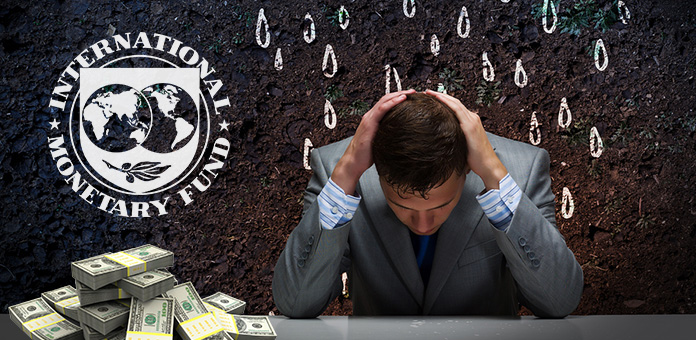
“History has taught us that it is very easy to underestimate the risks associated with private debt during the upswing.” –Vitor Gaspar, IMF fiscal chief
What causes financial and economic meltdowns? Out-of-control debt. It was certainly one of the underlying factors of the Great Recession in the U.S. about a decade ago. Economic initiatives like infrastructure spending could escalate the national debt. Recent warnings from the International Monetary Fund (IMF) make the situation especially alarming.
Global Debt Crisis
Last fall, the IMF published a report indicating that global debt is now more than $152 trillion—and growing. The report included several points of concern:
- This amount is more than double the size of the global economy.
- Debt accounts for 225% of the global Gross Domestic Product (GDP).
- More than 66 percent of this debt is held by the private sector.
- The debt burden is already stagnating growth and creating concerns about deleveraging.
- Since the Great Recession, the level of overall debt hasn’t fallen.
Ramifications of Runaway Debt
Debt has numerous consequences. Debt burdens prevent expenditures for other purposes. For example, national debt has nearly doubled in the past eight years, surpassing $19 trillion. Spending money on needed infrastructure is problematic, if not impossible. This debt is also a major reason the new administration has limited options for addressing the country’s current economic problems.
Debt also narrows nations’ avenues for addressing even small economic blips, much less major downturns. This is especially troubling in that the vast majority of debt today is held at historically low interest rates. Raising interest rates will greatly increase the debt burden and even threaten the survival of private companies.
The private companies that are at risk represent a major threat to global economic stability. Moreover, the organization points out that high debt-to-GDP ratios are the most frequent source of financial crises and economic shocks.
Surviving Financial Crisis
The simple facts are that the debt situation will be addressed by a major economic restructuring: the only question is how severe the situation is and how significant the crisis it creates.
Long-term investors in gold and precious metals understand these fundamental market realities and are best positioned to survive the looming global debt crisis. Paper currency is always devalued when governments fail to service their debt, and the collapse of private companies under unsustainable debt burdens sets off chain reactions of defaults and downward economic spirals. 1
Gold is a primary safe haven that protects portfolios from the scourges of such market downturns. Whether failed economic policies drive inflation up as in the ‘70s or cause a period of deleveraging and deflation, gold serves to protect the purchasing power better than paper currency and many other assets.
When the true cost of the current debt bubble is finally paid, it will affect everyone, and it is potentially a disastrous scenario for any who are not prepared with properly diversified portfolios.

